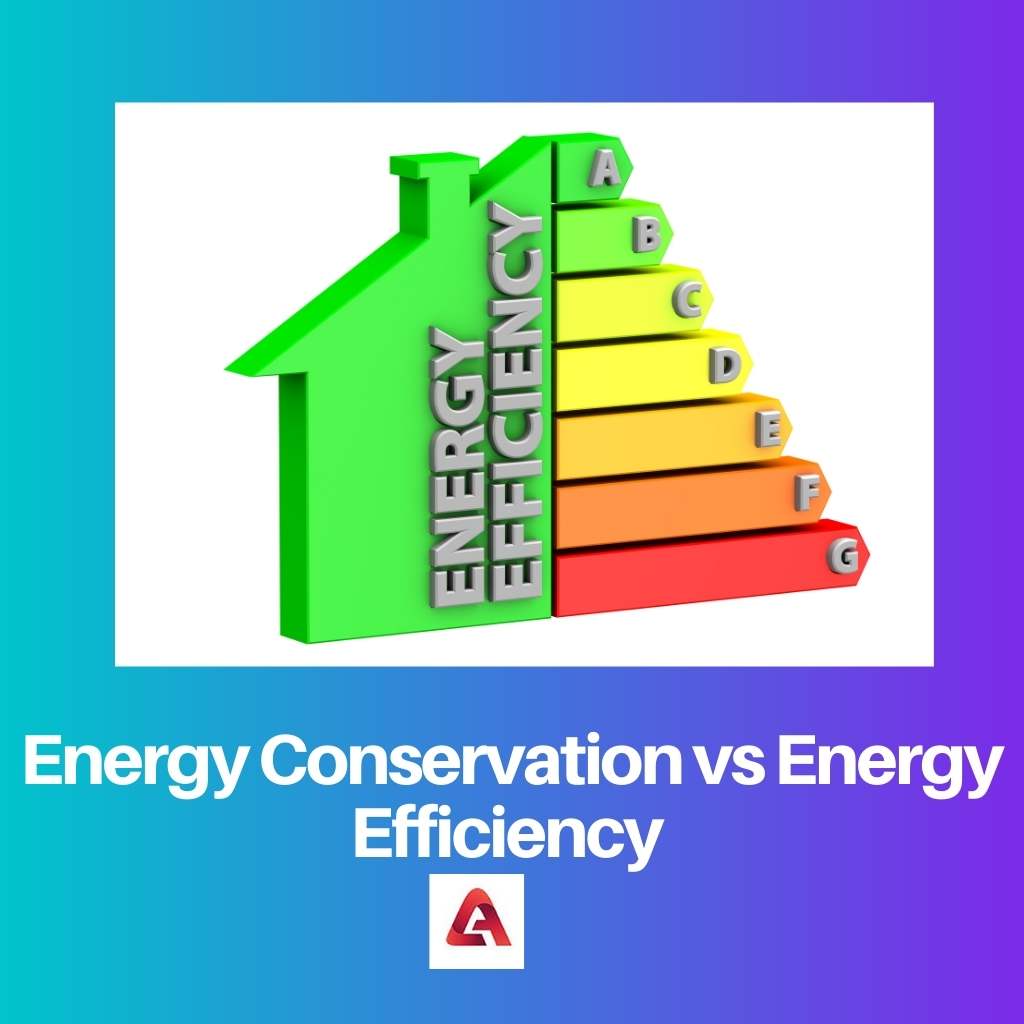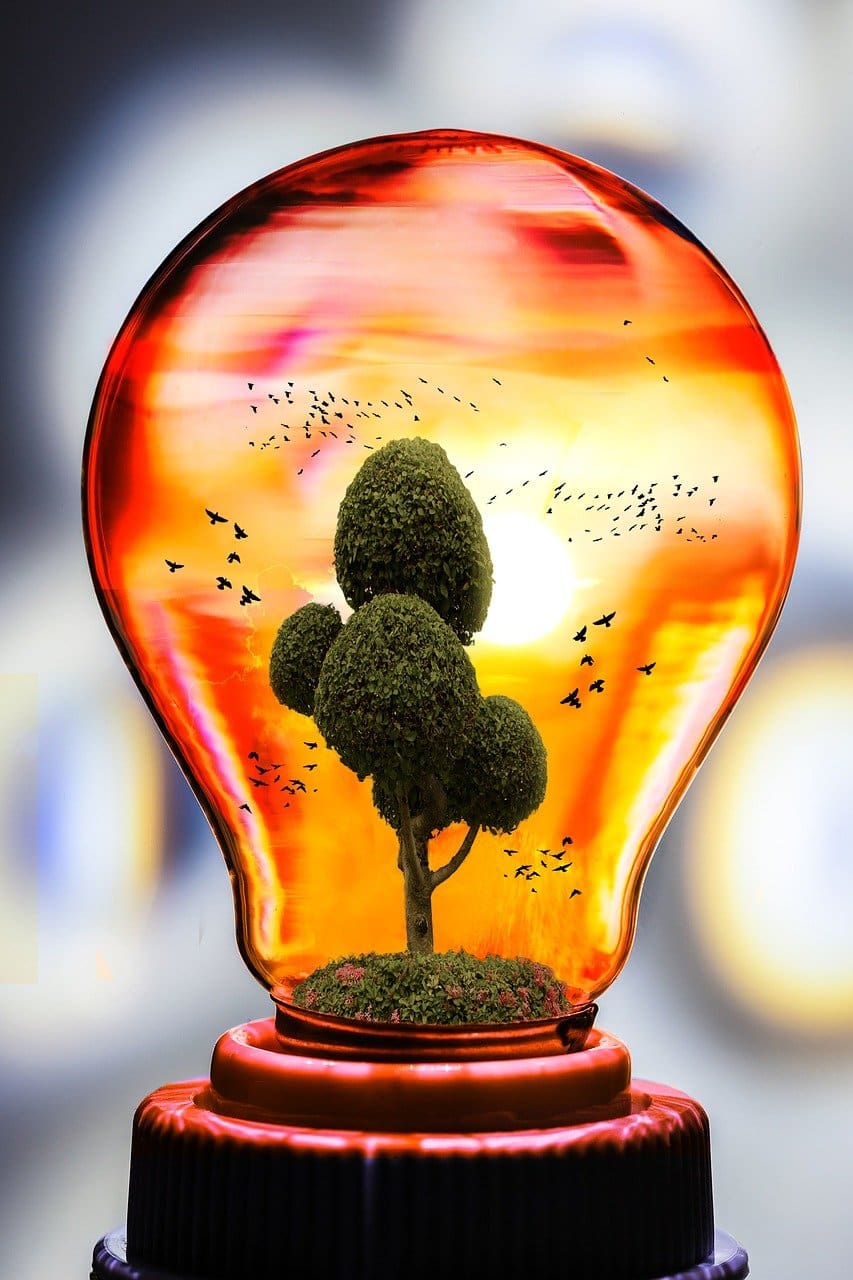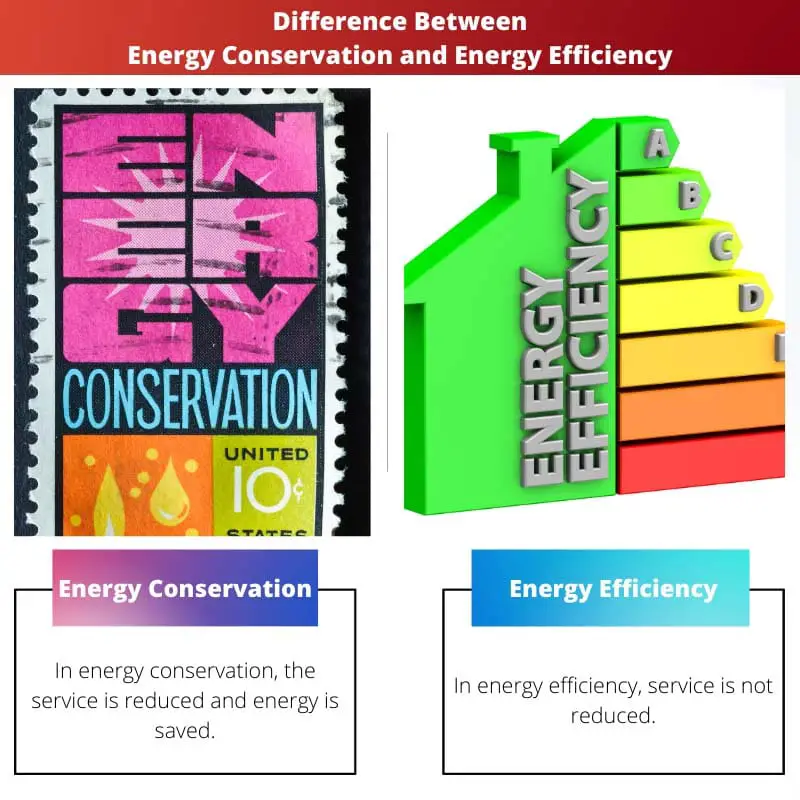Different natural and artificial resources give out different types of energy. These energies are useful for human beings for carrying out several experiments, and they have wide applications.
These resources are either natural or manmade, abundant or scarce, harmful or harmless, renewable or nonrenewable. Various projects and concepts are implemented not to waste these energies.
Two of those are 1. Energy conservation, and 2. Energy efficiency.
Key Takeaways
- Energy conservation involves reducing energy consumption by altering behaviors and habits, while energy efficiency focuses on using technology to accomplish the same tasks with less energy.
- Energy conservation measures include turning off unused lights, whereas energy efficiency involves replacing incandescent bulbs with LED lights.
- Energy conservation requires conscious effort and lifestyle changes, while energy efficiency involves upfront investments in energy-efficient appliances or systems.
Energy Conservation vs Energy Efficiency
Energy conservation refers to reducing the amount of energy used by eliminating waste and unnecessary consumption. Energy efficiency refers to using energy more efficiently by maximizing the output of energy for a given input and is achieved through improved insulation and better building design.

The process that includes saving energy that is used for completing a certain task is known as energy conservation.
In this process, it is made sure that energy is used less or conservatively for completing a certain project or work. The usage of energy is decreased in this process.
The process of using energy efficiently without decreasing it is known as energy efficiency.
In this process, the technology that uses minimum or efficient energy is used instead of performing a similar task with lesser energy. The focus is made on using energy in an efficient manner.
Comparison Table
| Parameters Of Comparison | Energy Conservation | Energy Efficiency |
|---|---|---|
| Service | In energy conservation, the service is reduced and energy is saved. | In energy efficiency, service is not reduced. |
| Energy usage | Energy usage is reduced. | Energy usage is done efficiently. |
| Focuses on | It focuses on how people can change their behaviour to save energy. | It focuses on how one can use different appliances that use less energy to carry out a similar task. |
| Process | In energy conservation, the pre-existing appliances and/ or material is used in an economic way. | In energy efficiency, the pre-existing appliances and/ or material is replaced with the material and/ or appliances that consume less energy. |
| Examples | Turning off various electrical appliances after their usage is complete, usage of natural light instead of turning on the lights in the house. | Replacing the electrical appliances with the ones with less energy consumption, installation of LED lights. |
What is Energy Conservation?
The process of using the available energy resources in an economic manner is known as energy conservation. In this process, the available material is used less for saving energy.
One can accomplish several benefits like money savings, environmental balance, etc, through energy conservation.
Several measures can be taken to conserve energy. By making use of this method, one can save future energy resources from extinction or demolition.
One can implement this method by upgrading the material they use that require energy, maintaining a balance and not wasting energy, making use of technological advancements, etc.
In the energy hierarchy, energy conservation is the topmost method of saving energy. The costs of the energy required and that can be used in the future are also decreased because of energy conservation.
Every year on 14 December, the world celebrates Energy Conservation Day. This day has been celebrated since the year 1991.
The law of energy conservation entails that energy can neither be created nor destroyed, and it can only change its form.
When energy changes its form during a certain task, for instance, when the machines are in motion to carry out a certain task, they require energy, and sometimes they lead to wastage of energy.
With the help of energy conservation, the wastage of energy can be avoided.

What is Energy Efficiency?
Energy sufficiency is the process in which, instead of cutting out the energy usage, the appliances that use the energy are replaced with the appliances that make less energy usage.
The concept of energy efficiency brings many advantages to humans. Instead of using renewable sources of energy frequently, one can also use non-renewable sources of energy by implementing energy efficiency.
Many people consider energy efficiency one of the cheapest energy-saving options. In this method, one does not have to cut back on their usage of a certain appliance as the appliance itself uses less energy.
The demand for energy imports can be reduced by using this method. Other than that, greenhouse gas emissions are also reduced.
When the materials that use more energy are replaced with materials that use less energy even at household levels, many economic benefits can be obtained.
The economy consists of different sectors that use energy for different tasks. Transportation, industrial processes, buildings for administrations, etc can also save energy by using appliances that consume less energy.
Small steps can be taken to practice energy efficiency. If a certain household is making use of bulbs that consume more energy, then they can be replaced by LED lights that consume less energy.
For covering a certain distance, some energy-efficient vehicles make use of lesser fuel. Making use of electric vehicles is also one of the useful energy-efficient options.

Main Differences Between Energy Conservation and Energy Efficiency
- In energy conservation, the usage of a certain appliance is reduced, on the other hand, in energy efficiency, the appliance itself is replaced by an appliance that consumes less energy.
- In energy conservation, the focus is made on how behavioral changes can be made in human beings to save energy, on the other hand, in energy efficiency, the focus is made on how one can use appliances that consume less energy.
- In energy conservation, the material or the appliance is not related, on the other hand, in energy efficiency, the appliance or material is replaced.
- In energy conservation, technological upgrades are not used, on the other hand, in energy efficiency, technological upgrades are used as the appliance itself is replaced.
- An example of energy conservation includes walking to a certain location, on the other hand, an example of energy efficiency includes making use of an electric vehicle.

- https://www.sciencedirect.com/science/article/pii/S0301421508004643
- https://www.sciencedirect.com/science/article/pii/0301421596000171

The article explain the differences between energy efficiency and energy conservation very clearly
Yes, it was very interesting to learn about these differences
It’s important to raise awareness about energy conservation and energy efficiency, and this article does a great job at that
Energy efficiency can bring great advantages to individuals and the economy, it’s a very interesting concept
Yes, I agree, it’s a very positive approach to saving energy
The article provides a comprehensive comparison between energy conservation and energy efficiency, thanks for sharing
I found the information about how energy conservation measures include turning off unused lights very useful
The article provides a very valuable insight into the key differences between energy conservation and energy efficiency
I agree, it’s important for people to understand and implement these concepts